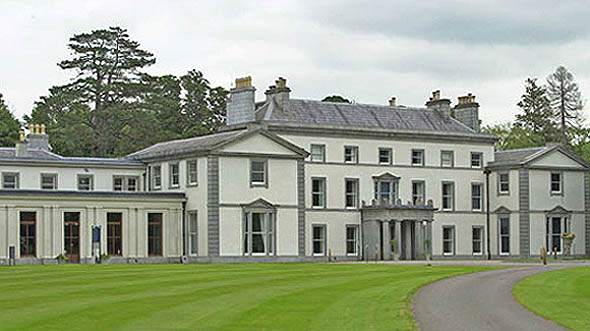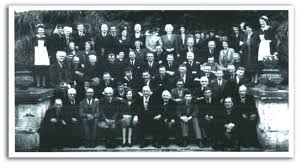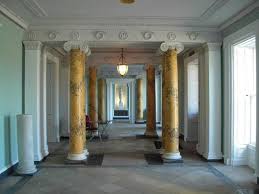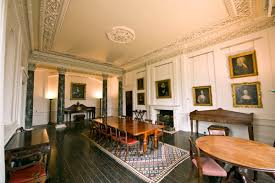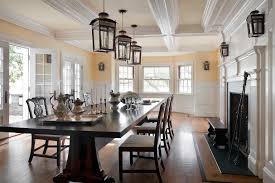The Benevolent Society for the Relief of the Aged and Infirm Poor. was the oldest Catholic charity in London founded in 1761 by Richard Challoner, the Vicar Apostolic of the London District [ the forerunner of the Archbishop of Westminster] between 1758 and 1781. It’s a nice worthy Catholic, and City cause, and it’s nice seeing eight members of the family all there. Having said that, only five were related at the time, another two came from a marriage twenty years later, and the final connection from a marriage fifty two years later.
At least at this one, Lieut.-General Sir William Butler’s speech is rather better than John Roper Parkington’s the following year.
ANNUAL DINNER.
The Annual Dinner in aid of the funds of this excellent charity was held on Monday last, and brought together a large number of the friends and supporters of the society.
Lieut.-General Sir William Butler, K.C.B., presided, and among the company present were the Hon. Charles Russell, Colonel Sir Roper Parkington, Colonel Maguire, Major J. H. White, V.D., Commendatore Hicks, C.C.S.G. ; the Very Revv. Canon Fleming, Canon Keatinge, Canon Murnane, Canon Pycke ; the Very Revv. J. P. Bannin, P.S.M., M. Kelly, O.S.A., D.D., P. J. Murphy, S.M. ; the Revv. Manuel J.Bidwell, D.D., Robert Bracey, 0.P., T. Carey, H. W. Casserly, Alexander Charnley, S.J., W. J. Condon, D. Corkery, G. B. Cox, J. Crowley, E. du Plerny, J. Egan, W. J. Hogan, S. E. Jarvis, I.C., W. Lewis Keatinge, Hugh Kelly, Mark A. Kelly, A. Muller, D.D., J. Musgrave T. F. Norris, J. O’Doherty, M. O’Sullivan, T. J. Ring, P. Riordan, C. A. Shepherd, E. Smith, C. J. Moncrieff Smyth, Francis Stanfield, J. G. Storey, W. 0. Sutcliffe, M.A., J. S. Tasker, E. A. P. Theed, Leo Thomas, S.M., A. E. Whereat, D.D. ; and Messrs. P. M. Albrecht, Frank Beer, Edmund J. Bellord, John G. Bellord, Harry Booth, James Carroll, J. H. Caudell, John Christie, A. K. Connolly, James W. Connolly, John A. Connolly, S. F. Connolly, P. F. Dorte, LL.B., Victor I. Feeny, H. Malins Fisher, A. C. Fowler, W. B. Hallett, Anthony Hasslacher,Charles Hasslacher, Jerome S. Hegarty, J. D. Hodgson, . Skelton Hodgson, S. Taprell Holland (Hon. Treasurer), J. M. Hopewell, John Hurst, John Hussey, R. H. N. Johnson, J. Virtue Kelly, C. Temple Layton, C.C., Charles E. Lewis, Bernard J. McAdam, James P. McAdam (Hon. Secretary), J. M. McGrath, C. A. Mackenzie, Herbert J. T. Measures, E. H. Meyer, A. C. O’Bryen, M.I.E.E., Ernest A. O’Bryen, Wilfrid W. Parker, Louis Perry, Joseph J. Perry, R. J. Phillips, Henry Schiller, J. H. Sherwin, Robert Shield, Eugene Simona, Joseph Simona, Joseph Sperati, James Stone, J. S. R. Towsey, William Towsey, C. H. Walker, Augustine E. White, Basil J. White, C. B. Wildsmith, P. G. Winter, H. Witte, C. J. Woollett, M.D., &c., &c.
THE LOYAL TOASTS.
The Chairman, in proposing the toast “The Pope and the King,” said : Catholics need no explanation of the toast I have now the high honour of proposing. By coupling together the name of Pope and King we reaffirm and maintain and continue that old tradition of Church and State which has existed in all civilised Christian communities for so many hundreds of years. I give you the healths of his Holiness the Pope and of his Majesty the King, and when we drink this toast with all loyalty and all honour, it would be well to remember the words of the old cavalier. Speaking to his son in the days of the Civil War, he said : “Son, if the crown should come so low that thou seest it hanging upon a bush, still stick to it.” (Loud cheers.)
The Chairman : The next toast I have to propose is that of the Queen, the Prince and Princess of Wales, and other members of the Royal Family. This toast meets with an enthusiastic greeting wherever it is proposed, but I venture to think there is no place where it can strike a deeper and truer note of harmony and devotion than when it is proposed at the gathering of a Society which has for its object the relief of the poor and the suffering. (Cheers.) The prerogatives of the Crown and the privileges of Parliament have oftentimes been the cause of civil disturbances in this country, but to-day the prerogative of Royalty is to lessen in every possible way the sufferings of the poor and of those who toil and labour for a livelihood. (Hear, hear.) Into the privileges of Parliament I will not enter, but it is our special privilege to-night to recognise in a special manner all that we owe to the Queen, to the Prince and Princess of Wales, and other members of the Royal Family.
SIR W. BUTLER AND THE SOCIETY.
After these two toasts had been acknowledged with musical honours, the Chairman proposed the toast of the evening, ” The Benevolent Society for the Relief of the Aged and Infirm Poor.” He said : I have now to propose to you a toast which brings very vividly before my mind the fact of my own un-worthiness in being the medium through which this toast is to be offered to the gathering tonight. (No, no.) And when I look back to the names of those who in former years fulfilled this duty, my feelings approach those of absolute dismay, because I find the toast has been submitted by some of the most revered, the most honoured amongst the Catholic body of this country, both clerical and lay. I can only plead for myself and ask you to accept the fact of my unworthiness as an excuse for being unable to do adequate justice to my task. (No, no.) This charity goes back a long way. It suggests many thoughts to even the most superficial amongst us. It has had, I believe, now well-nigh I50 years of existence. (Hear, hear.) The people who founded it were very different to what we are to-day. They had a great deal more of the world’s kicks and a great deal less of the world’s happiness. One hundred and fifty years ago the clouds of the penal laws hung darkly over the country. I will not refer to them further beyond saying that the remembrance of that period should deepen and intensify our desire to do good to the poor, to those whom the abrogation or even the existence of penal laws matters little, and whose social life is set so far below those of happier circumstances. We take a great interest in politics, but how little we would care for the most sensational paragraph in The Daily Mail if we had no breakfast-table to spread it upon, and more, if we had no breakfast to enable us to digest its amazing contents. (Loud laughter.) I see in the newspapers a great deal about free food, the big loaf and the little loaf. I wonder what our poorer brethren think of all these things—the big loaf, the little loaf, and the three acres and a cow. (Hear, hear, and laughter.) I can fancy some of these poor people, who have waited many years for the fulfilment of some of these marvellous promises, exclaiming ” If you cannot give us three acres, give us at least the cow.” (Cheers.) If we cannot give them the cow we can at least put some milk into their tea. (Loud and continued cheers.) They have claims upon us,.these old veterans of the poor. We may ask ourselves who are they ? I think I am right in saying they are the survivors, the few survivors, of a great army. (Hear, hear.) They are the scattered survivors of tens of thousands of a great army of workpeople out of whose sweat we are living. (Hear, hear.) These old veterans become eligible as candidates for this Society only when they have reached the ripe old age of 60 years. Think for a moment how many of their comrades must have fallen on that long road which they have travelled for half a century, or even longer. I look at the list of pensioners and I see their ages reach from 60 to 90. Two facts come home to me when I read the report of the Society. The first is the liberal gifts and benefactions of many of the large merchant princes of this city. (Cheers.) The second fact is that so many who respond to the appeal of the Society are from my own country—Ireland. (Loud cheers.) You remember the story of the boat’s-crew cast adrift on the ocean. Believing their last hour had come they thought they should do something appropriate to the occasion. Unfortunately there was no one amongst them who remembered the prayers of their youth, so they decided upon making a collection. (Loud laughter.) I do not for a moment suppose that any of my brethren who were unfortunate enough to find themselves in a similar position would have to resort to making a contribution to the seals and the seagulls, but I do venture to say that the most prayerful man amongst us could not offer any truer praise to his Creator, or do a more charitable act to his fellow creature than to contribute generously and unstintingly to a Society such as that which we have met to honour this evening. (Cheers.) There are few names come down from the remote past more identified with this great city of London than the name of Martin the apostle, the Roman soldier before he was Roman Bishop. The speaker, after relating the story of Martin dividing his coat to protect a poor beggar from the ravages of the weather, and the vision which he afterwards saw, said London was still, outwardly at least, largely Martin. Perhaps some portion of his mantle, said the speaker in conclusion, has descended upon this great city, still keeping alive his name and the spirit of charity to the poor. (Cheers.) 3rd December 1904, Page 23




